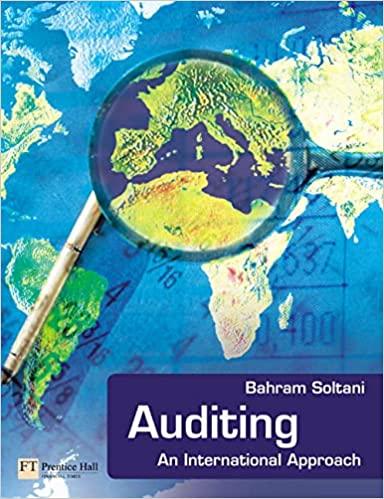Question:
There are major differences between accounting and auditing practices in the US and some of the EU member states.15 An unqualified audit report prepared on the basis of US format is shown as Figure 12.12
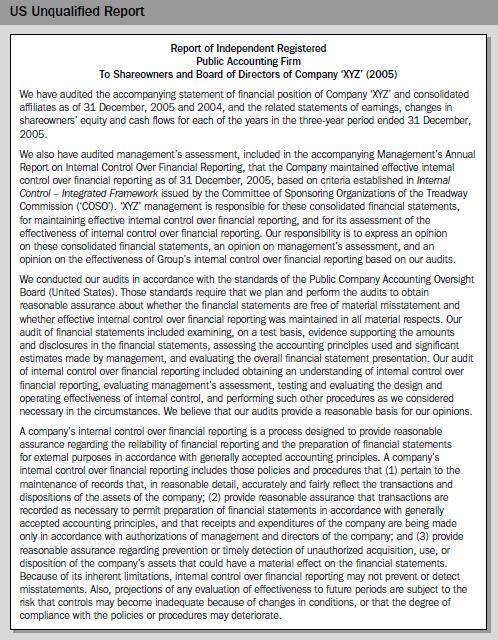
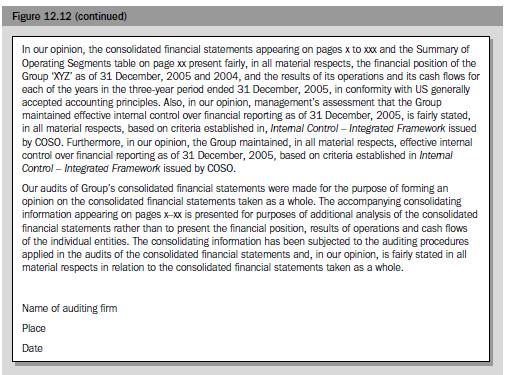
You are asked to compare the US format with those shown in case 12.29 In your comments, consider the points raised in part
(b) of 12.29
The form and content of an audit report are affected by environmental factors such as the legal and economic circumstances, as well as the accounting and auditing practices used in each jurisdiction. Despite efforts to harmonize the accounting and auditing practices within the EU, there are still differences regarding national auditing standards governing the form and content of auditors’ reports for statutory audit of financial statements within member states. European Commission rules requiring public companies within the EU to comply with International Financial Reporting Standards (IFRSs) are part of a global strategy to harmonize financial reporting within EU member states.
Figure 12.11
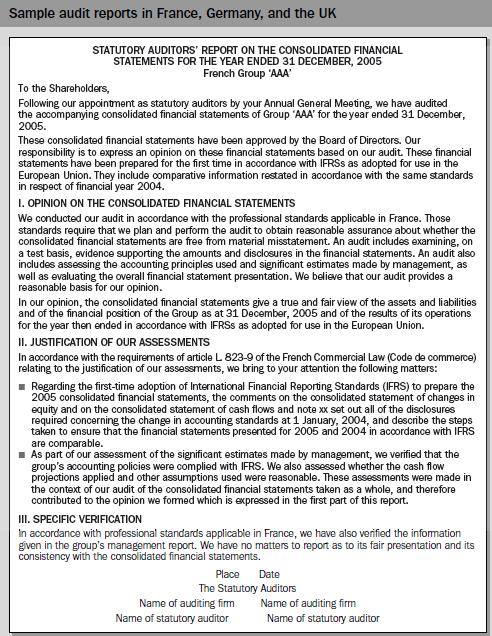
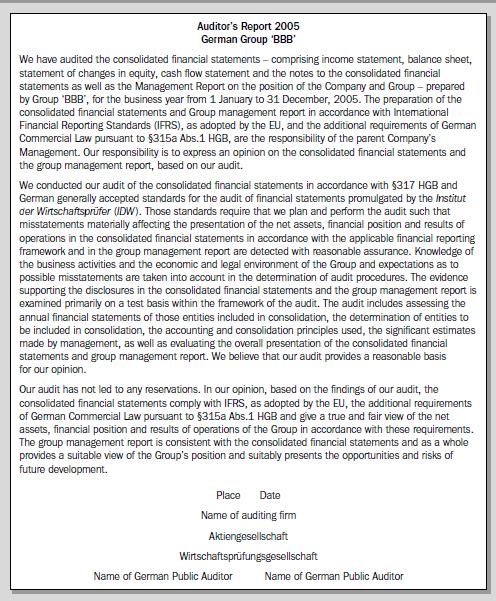
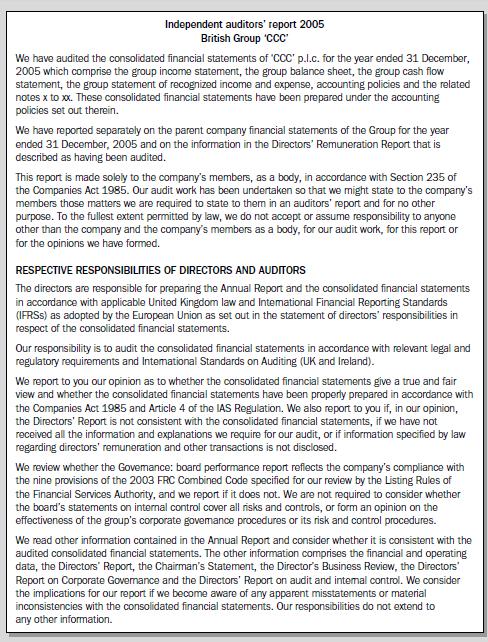
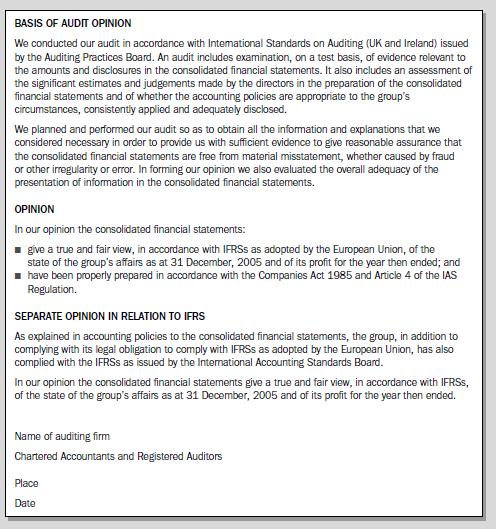
Transcribed Image Text:
US Unqualified Report Report of Independent Registered Public Accounting Firm To Shareowners and Board of Directors of Company "XYZ" (2005) We have audited the accompanying statement of financial position of Company 'XYZ" and consolidated affiliates as of 31 December, 2005 and 2004, and the related statements of eamings, changes in shareowners' equity and cash flows for each of the years in the three-year period ended 31 December, 2005. We also have audited management's assessment, included in the accompanying Management's Annual Report on Internal Control Over Financial Reporting, that the Company maintained effective intemal control over financial reporting as of 31 December, 2005, based on criteria established in Internal Control - Integrated Framework issued by the Committee of Sponsoring Organizations of the Treadway Commission ('COSO). "XYZ" management is responsible for these consolidated financial statements, for maintaining effective intemal control over financial reporting, and for its assessment of the effectiveness of internal control over financial reporting. Our responsibility is to express an opinion on these consolidated financial statements, an opinion on management's assessment, and an opinion on the effectiveness of Group's internal control over financial reporting based on our audits. We conducted our audits in accordance with the standards of the Public Company Accounting Oversight Board (United States). Those standards require that we plan and perform the audits to obtain reasonable assurance about whether the financial statements are free of material misstatement and whether effective internal control over financial reporting was maintained in all material respects. Our audit of financial statements included examining, on a test basis, evidence supporting the amounts and disclosures in the financial statements, assessing the accounting principles used and significant estimates made by management, and evaluating the overall financial statement presentation. Our audit of internal control over financial reporting included obtaining an understanding of internal control over financial reporting, evaluating management's assessment, testing and evaluating the design and operating effectiveness of intemal control, and performing such other procedures as we considered necessary in the circumstances. We believe that our audits provide a reasonable basis for our opinions. A company's internal control over financial reporting is a process designed to provide reasonable assurance regarding the reliability of financial reporting and the preparation of financial statements for extemal purposes in accordance with generally accepted accounting principles. A company's internal control over financial reporting includes those policies and procedures that (1) pertain to the maintenance of records that, in reasonable detail, accurately and fairly reflect the transactions and dispositions of the assets of the company; (2) provide reasonable assurance that transactions are recorded as necessary to permit preparation of financial statements in accordance with generally accepted accounting principles, and that receipts and expenditures of the company are being made only in accordance with authorizations of management and directors of the company; and (3) provide reasonable assurance regarding prevention or timely detection of unauthorized acquisition, use, or disposition of the company's assets that could have a material effect on the financial statements. Because of its inherent limitations, intermal control over financial reporting may not prevent or detect misstatements. Also, projections of any evaluation of effectiveness to future periods are subject to the risk that controls may become inadequate because of changes in conditions, or that the degree of compliance with the policies or procedures may deteriorate.











